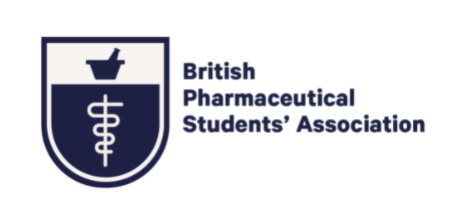Careers - NHS 111
Are you interested in a career in emergency services? Or perhaps you just want some insight into what the role of pharmacists in such services entail... If so, read this article by Minna Eii, an NHS 111 pharmacist!
NHS 111
A year after COVID-19 shut the world down, I decided to challenge myself by applying for the role of bank NHS 111 Integrated Urgent Care (IUC) Pharmacist at the North East Ambulance Service NHS Foundation Trust via the NHS Jobs website. I felt it was an especially important role in the current situation because I would have the ability to help patients who may be self-isolating at home and those who may be facing a delay in accessing healthcare services due to the backlog from the pandemic. I was keen to gain new skills and learn how to conduct consultations over the phone and appropriately triage patients remotely based on their clinical presentations. I was also excited to be working in a multi-disciplinary team (MDT) including paramedics, who are a group of frontline workers that pharmacists don’t usually get to work with!
During my induction, I spent time shadowing the initial call handlers who answered both 111 and 999 calls, the ambulance dispatch team, and a lead paramedic who triages all calls from the system. My line manager, who is an experienced Advanced Pharmacist Practitioner, supervised and talked me through various clinical competencies over a few weeks before signing me off to handle more complex calls. My clinical cases are usually out of hours, on weekends and evenings, which can range from a straightforward repeat medication request to a lengthy conversation with a suicidal patient whose mental health has deteriorated.
Some examples of calls I have dealt with are:
“Can you please issue me a prescription for Trazodone over the weekend until I can get in touch with my GP on Monday?”
“The carer this morning has not given the patient her bisoprolol, can I give it now at teatime?”
“I am a nurse practitioner who has just been out to assess a patient with cellulitis and I need a prescription for antibiotics.”
“My 7-year-old child has been bitten by an insect when we were out on the beach, her leg is now swollen and hot to touch.”
“I’ve tested positive for covid 3 days ago and finding it increasingly difficult to breathe and my pulse oximeter at home shows a saturation of 87%. Can you send an ambulance out to check on me?”
I was able to divert some of these patients to a community pharmacy by sending an NHS Community Pharmacist Consultation Service (CPCS) referral or suggesting an over-the-counter preparation that could be helpful to self-manage at home. With many years of community pharmacy experience working as a locum pharmacist, I already had knowledge of what services they can offer and this proved useful.
For some patients, you have to decide, based on your clinical knowledge and experience, how urgently they need to be assessed. For example, can they wait to see their GP during working hours, or do they require urgent care or emergency referral to be assessed by a clinician face to face? An example of this was when I had to manage an out of hours blood report with a flagged potassium level of 7, where I had to persuade the elderly patient to attend the Emergency Department for further investigation and management.
Safeguarding is an important part of this role and I have received Level 3 training to support this. I recently had to complete a safeguarding referral for an elderly patient who I thought was in a vulnerable situation requiring urgent medical attention and social services referral.
Working full time as an Advanced Pharmacist Practitioner on the Acute Medicine ward for several years and attending ward rounds with the medical team, I have been able to transfer my knowledge and skills to facilitate the management of a variety of patient cases in NHS 111 as the cases are of a similar nature (e.g. septicaemia). Similarly, I also have access to a clinician in an MDT to seek advice or a second opinion from.
Working in the Clinical Advisory Service (CAS) has helped me realise the patient’s journey in navigating our complex healthcare system and how they end up where they do (hospital, community pharmacy, urgent care centres) from their initial contact. It is rather rewarding to know that I have helped patients access clinical care in a timely manner and it has made me reflect on how vital my role is to fully understand the existing service provisions from both primary and secondary care to prevent overwhelming the NHS. It is beneficial to have pharmacists working on NHS 111 as we are the experts in medicines and can swiftly deal with calls relating to pharmacy operations.
My Tips:
There are plenty of resources available to help you prepare for the job interview:
The NHS England website has plenty of information about pharmacists working in the IUC CAS.
The Royal Pharmaceutical Society (RPS) currently runs CPCS workshops in conjunction with the Royal College of General Practitioners (RCGP) for pharmacists to attend virtually.
Centre for Pharmacy Postgraduate Education (CPPE) has a learning programme on remote consultation skills.
Each NHS 111 provider operates differently so speak to the pharmacists working in your local 111 service about the job before you apply. This role would appeal to pharmacists from any background – hospital, community pharmacy, or primary care, as full training would be provided. The role requires you to be dynamic, adaptable, and able to make logical decisions under pressure. It is most suited to someone who is self-motivated, thrives in challenging situations, and wants to develop their clinical practice!
Minna Eii
Bank NHS 111 Integrated Urgent Care (IUC) Pharmacist
North East Ambulance Service NHS Foundation Trust
